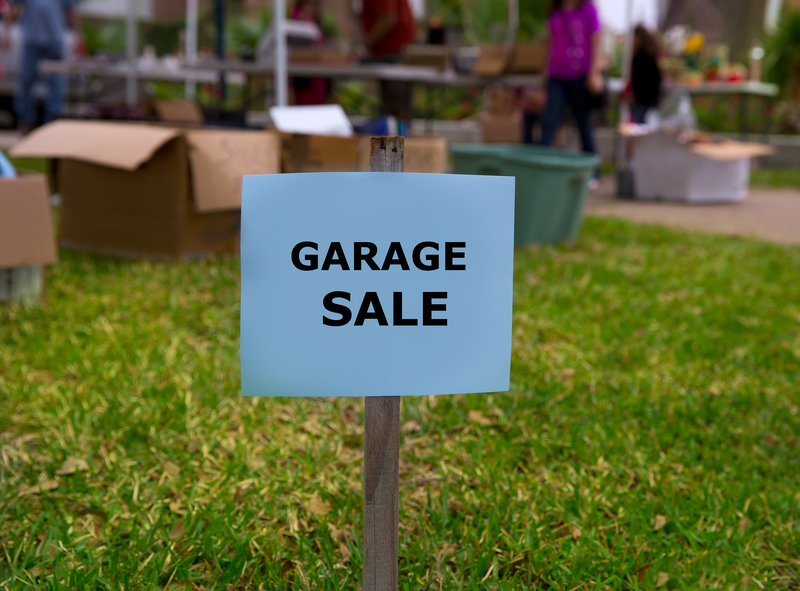How to Handle Bulky Waste Items Without Breaking the Bank
Dealing with bulky waste can often become a financial headache for households and small businesses alike. Oversized items such as old furniture, appliances, mattresses, or construction debris don't fit inside standard garbage bins, and specialized disposal solutions can be costly. In today's guide, we'll explore cost-effective strategies and actionable tips for disposing of large waste items, so you can clear out your space affordably and legally, all while keeping the environment in mind.

Understanding Bulky Waste: What Qualifies as Bulky Waste?
*Bulky waste*, sometimes called large waste or special waste, refers to items too big or heavy for regular garbage removal. Common examples of bulky items include:
- Old mattresses and bed frames
- Sofas, couches, and chairs
- Wardrobes, tables, and other outdated furniture
- Large appliances like refrigerators, dishwashers, or washing machines
- Garden equipment, lumber, wooden palettes
- Carpets and large rugs
- Televisions and electronic goods
- Home renovation debris (doors, cabinets)
Assess Before You Dispose: Alternatives to Dumping Bulky Waste
Before planning a costly disposal, consider your options for reducing large waste. Sometimes, what looks like a throwaway item might have value to someone else or can be repurposed. Here are a few practical ideas:
- Donate usable items to local charities or thrift stores
- List large furniture or appliances for free on online marketplaces (Facebook Marketplace, Craigslist, Freecycle)
- Offer reusable construction materials to local community projects or schools
- Contact recycling centers for specialized items (electronics, white goods, scrap metal)
- Host a yard sale for furniture, bikes, or tools
- Ask friends and neighbors--someone may need what you have!
Affordable Bulky Waste Removal Options
1. Municipal Bulky Waste Collection Services
Most cities and towns offer special curbside collection for bulky items. Some regions include this service in your regular waste fees, while others require an appointment or a small fee per item. To maximize savings:
- Check your city's website for scheduled bulky waste pickup days
- Combine multiple items for collection in one go
- Confirm which items are accepted--some programs exclude electronics or hazardous materials
- Book ahead to avoid extra charges for missed collections
2. Self-Haul to a Local Recycling or Waste Facility
Hauling your own large items is often the cheapest way to dispose of bulky waste if you have access to a truck or trailer. Here's how to do it in a budget-friendly way:
- Research community waste transfer stations and their fees
- Sort items by type (metal, electronics, wood) for free or discounted recycling
- Coordinate with neighbors to share hauling costs for multiple loads
- Check for free landfill drop-off days offered by your city
3. Rent a Small Dumpster or Skip Bin
If you have a lot of large junk or are doing a full house cleanout, renting a mini dumpster or skip bin could be cost-effective.
- Compare prices between local rental companies--rates can vary widely
- Choose the correct bin size to avoid overage fees
- Fill the bin collaboratively (shared between neighbors or friends)
- Only place allowable items to avoid extra charges
4. Bulk Item Drop-off Events
Many communities host annual or semi-annual bulk waste events. These are usually free or involve a nominal charge, and they provide a legal and eco-friendly way to dispose of difficult items.
- Watch local news or city websites for upcoming events
- Prepare your items in advance and verify acceptance guidelines
- Arrive early--some events are first come, first served
Best Practices for Budget-Friendly Bulky Waste Disposal
Plan Ahead and Organize
Decide what you need to remove and group similar items together. A well-organized pile is easier to manage and could save you money if collection is priced by volume.
Break Down Large Items When Possible
*Disassemble* bed frames, bookshelves, and large furniture to fit more into your vehicle or bins. Breaking items down also reduces labor costs if you're paying for pickup by the hour or item.
Prioritize Free and Low-Cost Options
- Utilize donation and reuse networks first
- Take advantage of city bulk collection or drop-off days
- Recycle applicable materials before considering landfill disposal
Understand Local Rules and Avoid Illegal Dumping
Dumping bulky waste illegally can result in heavy fines and environmental harm. Before attempting disposal, confirm the rules for your area regarding curbside pickup, transfer station hours, and what items are prohibited.
Tips for Minimizing Bulky Waste in the Future
Preventing the accumulation of large waste saves you time and money in the long run. Here's how to minimize the need for costly removal:
- Buy quality, long-lasting furniture and appliances to reduce replacement frequency
- Look for items with modular or recyclable components
- Repair or refurbish broken items before deciding to toss them
- Opt for rentals (like lawn equipment or tools) when possible
- Host regular clean-outs to stay ahead of clutter
Why Proper Bulky Waste Disposal Matters
- Environmental Impact: Improper disposal can pollute land and waterways. Recycling or repurposing large items lessens environmental harm.
- Community Aesthetics: Bulky items left curbside or dumped illegally create eyesores and lower property values.
- Legal Compliance: Many municipalities have strict rules and heavy fines for illegal dumping.
- Resource Conservation: Donating and recycling bulky waste preserves landfill space and conserves raw materials.
Creative Ways to Reuse or Repurpose Bulky Junk
Before spending a penny on removal, think creatively. Old furniture, wood, or appliances can often be given new life. Here are some ideas:
- Turn an old dresser into a garage storage organizer
- Use cabinet doors for DIY shelving or garden planters
- Convert pallets and lumber into compost bins or outdoor seating
- Refurbish or paint tired furniture for resale or donation
- Turn steel or metal into art projects
Bulky Waste Disposal on a Budget: Frequently Asked Questions
What is the cheapest way to dispose of large furniture?
The most economical methods include donating to a second-hand store, giving items away online, or using your city's free bulk collection days.
Can I leave my old mattress at the curb?
Rules vary by community. Some areas offer seasonal curbside pickup for mattresses, while others require you to drop it off at a specific facility or schedule a paid pickup. Never dump mattresses illegally, as fines can be substantial.
Do recycling centers accept all bulky waste?
No. Most recycling depots accept only certain materials--often electronics, metals, or appliances. Always check with your center before hauling bulky items.
Is renting a dumpster worthwhile for bulky waste?
If you have a large volume of bulky waste or are clearing out multiple rooms, renting a small dumpster might be cost-effective--especially if you split costs with friends or neighbors. Otherwise, try donation or free municipal services first.

The Bottom Line: Clear Out Bulky Waste Without Breaking the Bank
Bulky waste disposal doesn't have to be expensive. By evaluating reuse, donation, and recycling options--as well as taking advantage of free or low-cost municipal programs--you can manage large junk safely and cheaply. Remember to:
- Explore all alternatives before paying for removal
- Research local services and collection days
- Network with friends, neighbors, and online groups
- Always dispose of waste responsibly to protect the environment and your wallet
Further Reading & Resources
- EPA Guide for Reducing, Reusing, and Recycling
- Donate Large Items to Habitat for Humanity ReStores
- Give Away Bulky Items on Freecycle
- Find Local Bulky Waste Resources
Want more advice on disposing of specific bulky items without overpaying? Comment below or share your experiences with affordable bulky waste solutions!
